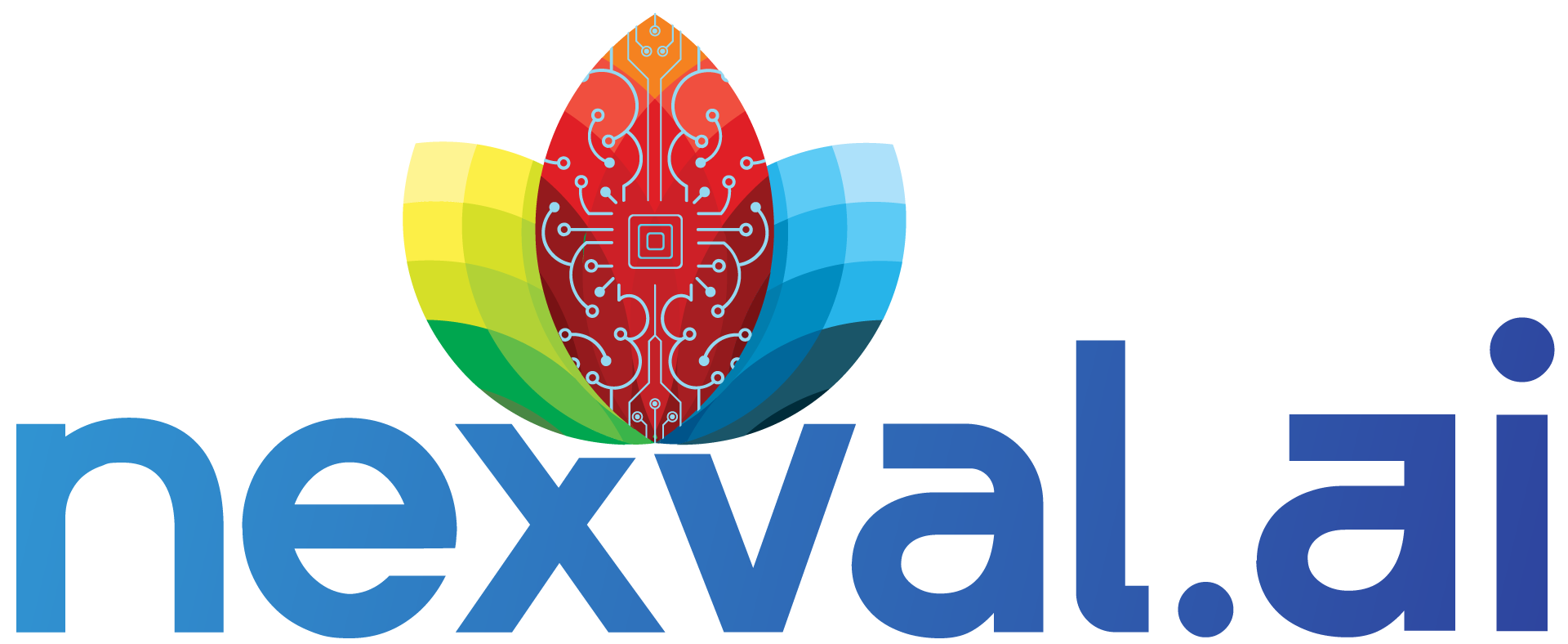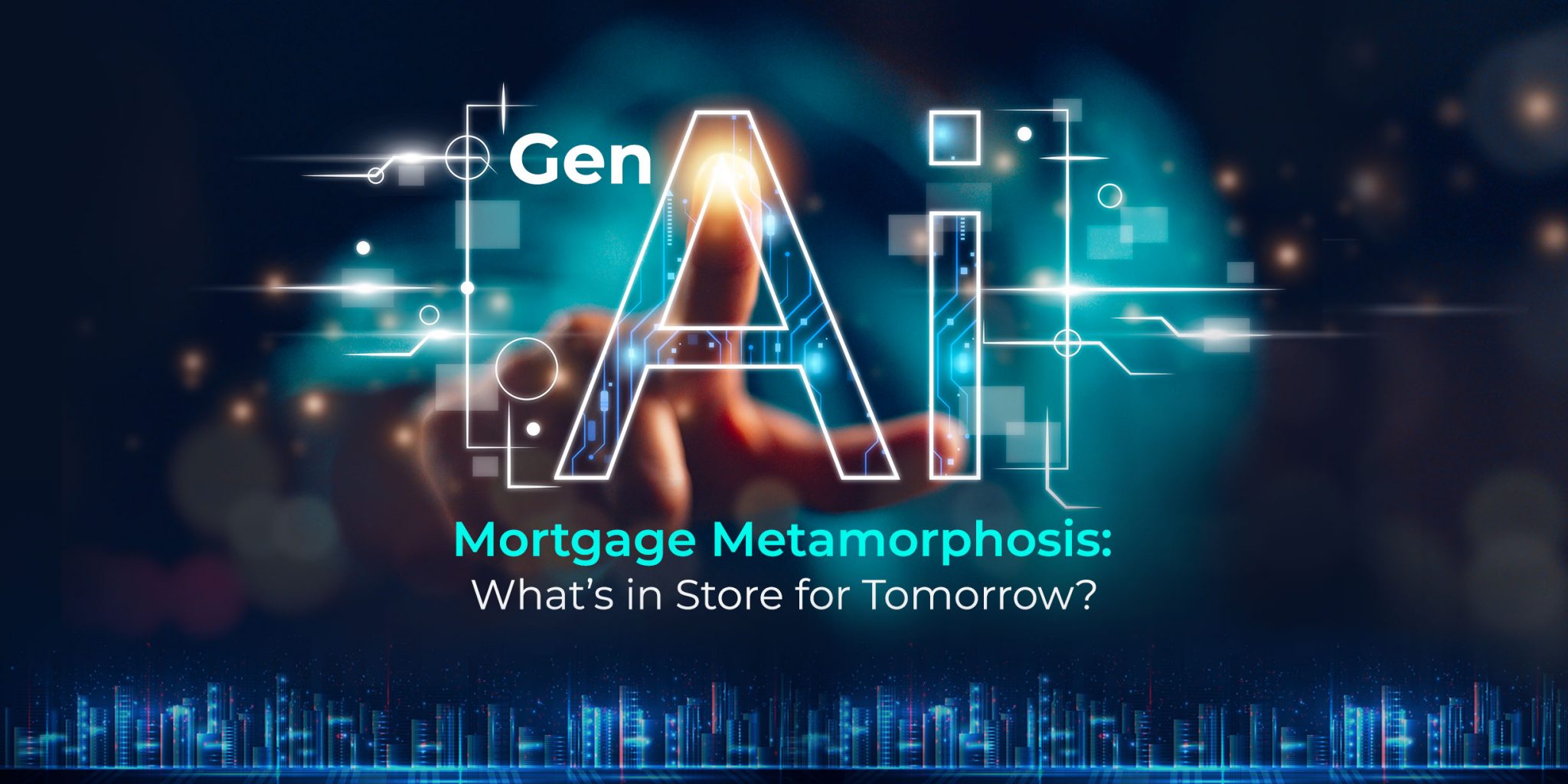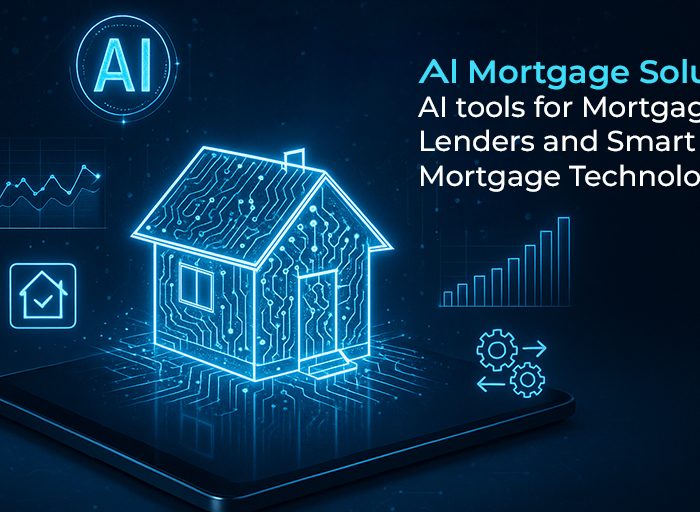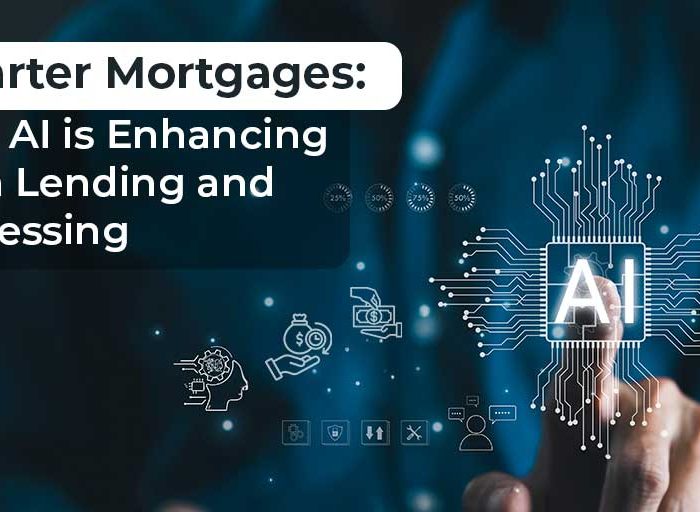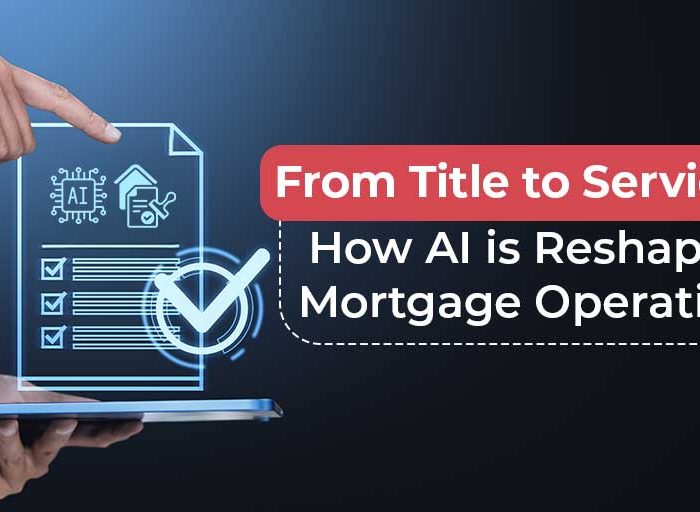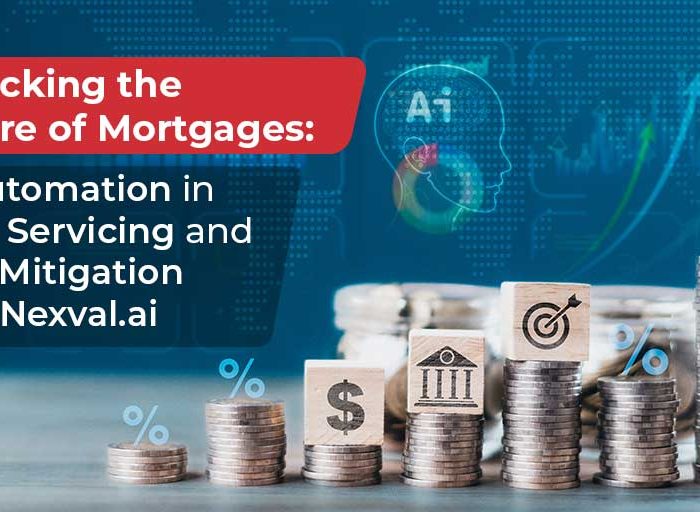Generative artificial intelligence or gen AI had its breakout year in 2023. While overall AI adoption holds steady at 55%, over 2 in 3 companies are planning to pilot gen AI technology. This is because of its incredible versatility, putting it at par with once the internet and more recently the cloud in terms of its business potential. Mortgage processing too is a prime candidate for gen AI metamorphosis given its data-intensive nature, providing plenty of material for gen AI models to train and learn.
How Does Gen AI in Mortgage Processing Work?
At its core, gen AI works by analyzing past information and using statistical algorithms to learn how to mimic it and create new information. These algorithms can be of various types like variational autoencoders (VAEs), generative adversarial networks (GANs), and autoregressive models. They allow the AI system to learn from content over time (typically several gigabytes of data) and get incrementally smarter.
Gen AI companies blackbox this technology into software that you can implement and interact with using simple GUI or conversational interfaces. The technical barriers to gen AI adoption are significantly lower than other forms of artificial intelligence, which can be harder to build, integrate, and maintain.
In a recent EY survey of financial service leaders, all respondents say that gen AI is part of their roadmap; only 1 in 5 said that they are “nervous or skeptical” about its impact.
In mortgage processing, AI already plays a critical role in tasks like credit risk assessments, underwriting, document management, and customer communications. Gen AI would take this a step further by adding a natural language wrapper around the entire process, making it widely accessible to even non-technical mortgage processing executives.
Read More: How Mortgage Businesses Can Benefit from Generative AI
What is the Future of Gen AI in Mortgage Processing? Unraveling the Metamorphosis
This new form of artificial intelligence goes beyond simple automation of manual tasks. It signals a paradigmatic shift in how we approach mortgage processes, interpret data, and make decisions. Here are the potential impact areas in the not-so-far-away future:
1. The mortgage approval process shrinks dramatically
Now: Today, the average mortgage processing timeline from the first application to closure takes anywhere between 30 and 60 days. A lot of this is due to protracted approvals, where mortgage applicants must jump through several hoops to complete verifications and obtain funds. Not only is this detrimental to the customer experience, but it also lowers mortgage processing capacity and, consequently, profitability.
Tomorrow: Sophisticated Gen AI platforms can crunch applicant data — both structured and big data — to generate approval estimates in an easy-to-understand natural language. Eventually, it could facilitate instantaneous approvals, accessible 24/7.
2. Servicing workflows need minimal documentation
Now: While technology has progressed, servicing workflows have, paradoxically, become less efficient. This is due to a variety of factors like new regulations, economic pressures, and the pandemic. Since 2019, the cost of servicing alone has increased by over 9%, with admin expenses contributing to 20% of costs. At the same time, the average number of loans serviced by one mortgage executive dropped from 900 to 723.
Tomorrow: Gen AI could significantly reduce the documentation burden involved in mortgage servicing by automatically extracting data from multiple disparate sources. It could also help build contextualized memory, which means that each customer communication is automatically contextualized with previous information without the need for repeated documentation exchange.
3. Personalized mortgage products help navigate financial crises
Now: Prospective home buyers have encountered numerous challenges in the last few years, from COVID-related restrictions to rising interest rates, from inflation cutting into savings to limited real estate inventory. Buying a home remains out of reach for most Gen Z home buyers, even millennials, due to unprecedented changes in the country’s socio-economic front.
Tomorrow: While much of this is systemic, gen AI could offer innovative workarounds and product/service packages tailored to individual buyers’ financial conditions. What’s more, the technology would be able to complete this complex mortgage processing task in a fraction of the time it’d take us humans, enabling personalization without increasing headcount or costs.
4. Mortgage decision-makers are better equipped to adapt to a fast-changing future
Now: The mortgage industry has witnessed rapid changes in the last few years, with several trends bucking our expectations. For example, despite high-interest rates and inflation, there’s still huge demand for new properties. Decision makers need to be able to quickly analyze information, draw inferences, and take the right action for their mortgage processing businesses. Unfortunately, siloed data, lack of data science skills, and complicated dashboards often get in the way of this.
Tomorrow: Gen AI would be able to generate data snapshots from vast amounts of information, including market intelligence, regulatory documents, and mortgage processing analytics. These natural language snapshots will include recommendations with quantifiable accuracy estimates and weighted evaluations.
Read More: What Is Decision Intelligence and How Can It Impact the Mortgage Industry
Preparing for the Gen AI Metamorphosis
While it may take a few years to reach maturity, the era of gen AI in mortgage processing is already here. Organizations need to start preparing by shoring up their data infrastructure, cloud-based systems, and, most importantly, their operational culture.
Gen AI is poised to upend your current working model — and Nexval is here to help you navigate this change. Our team of 1000+ SMEs works with top American mortgage companies to pave the way for digital transformation now and in the future.
Speak with our experts to know more.
